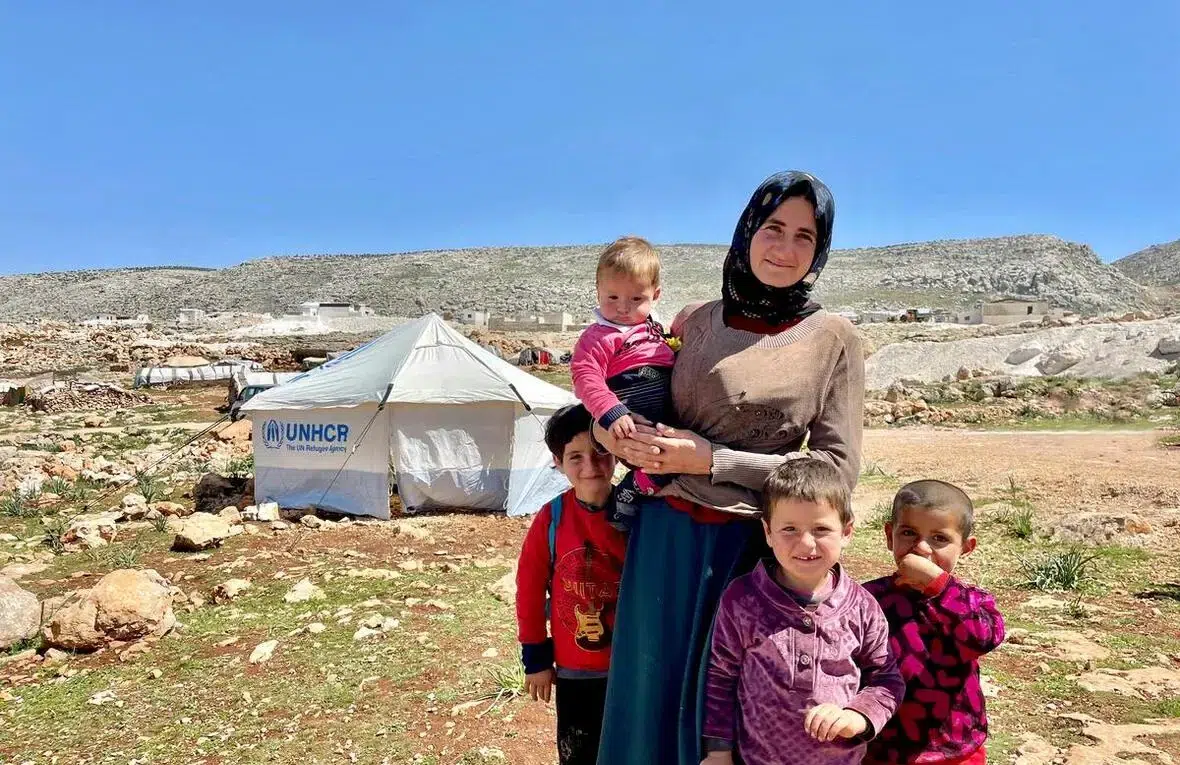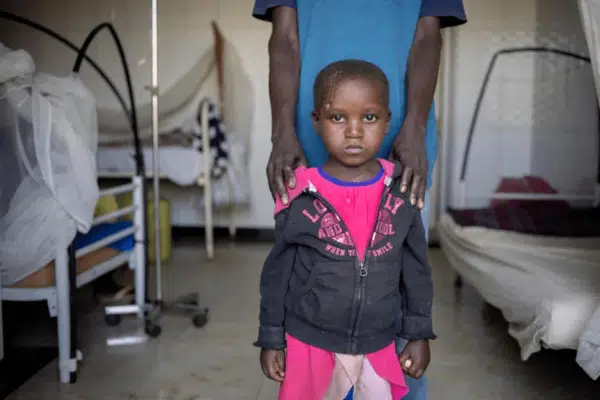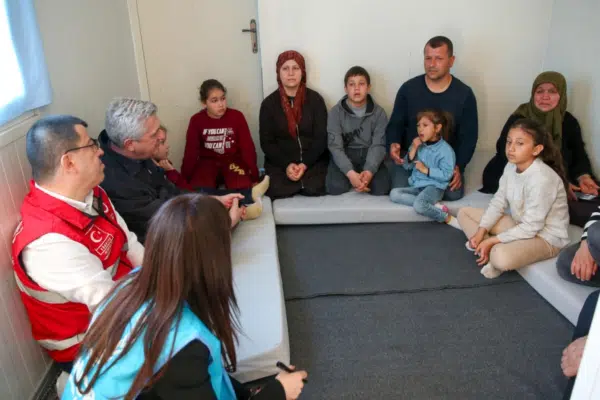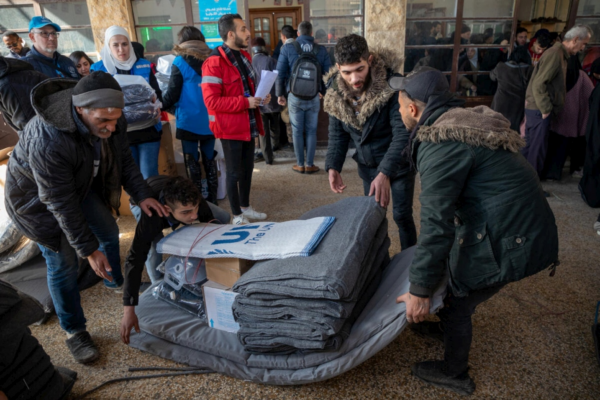
Shamseh and her children stand in front of their shelter in Barmaya site for internally displaced people in Afrin District, north-west Syria. © UNHCR/Priscilla Gracinda Gomes
Having rebuilt her life after fleeing conflict, February’s disaster forced Shamseh and her family into a remote camp where – like millions across the region – they require help to survive.
By Priscilla Gomes in Barmaya displacement site, north-west Syria | 25 April 2023
Three years after escaping the bombardment of their hometown Andzara near Aleppo in 2020, Shemseh and her family finally felt a sense of normalcy returning to their lives. Having fled to the town of Jandairis in northwest Syria’s Afrin district, they rented a house, her eldest child was attending a local school, and the couple had just had their fourth child.
But on 6 February, their lives were again thrown into chaos following the powerful earthquakes that struck northern Syria and southern Türkiye, which killed more than 56,000 people and displaced millions more across the two countries.
“We were sleeping when the ground started to shake. I just remember running to get my children and rushing outside,” Shamseh said. “Our house didn’t collapse but was damaged.”
“I fear returning to my house.”
With nowhere else to go, they joined relatives living in a remote rural encampment for people previously displaced during Syria’s 12-year crisis, joining more than 100 other families left homeless by the natural disaster. Tents and other makeshift shelters dot the low, rocky hillside at the Barmaya site, which has no sanitation facilities or electricity and lies 10 kilometres from the nearest water source.
The couple and their four children crammed into a shelter of low mud and stone walls topped with a plastic sheeting roof. Shamseh described finding a snake in the shelter one day, but said living there was still preferable to returning to their rented home.
“I fear returning to my house in Jandaris,” she explained. “We need food, clothes for our children and running water, [but] staying in a tent here is still safer than staying in a building there.”
Worsening humanitarian crisis
Even before the earthquakes struck, the level of human suffering in north-west Syria was immense. Two-thirds of the total population of 4.5 million people had already been displaced during the country’s long-running conflict, while more than 4 million were reliant on humanitarian aid to meet their needs.
Following the disaster, the situation has become even more critical. Thousands of families like Shamseh’s who had previously been able to provide for themselves have lost everything, compounding the urgent need for basic assistance such as shelter, food, water, health care and sanitation.
Getting assistance to those that urgently need it presents another major challenge, with aid deliveries to the area largely reliant on cross-border convoys from southern Turkey. UNHCR, the UN Refugee Agency, established its cross-border operations in 2014, working with local NGOs to deliver basic household items and shelter solutions, as well as camp management and protection services including psychosocial support and advice on property rights and access to civil documentation.
In response to the earthquakes, UNHCR immediately released pre-positioned aid supplies to meet the most urgent needs and has scaled up its operations in the region. Among those helped was Shamseh, who recently received a UNHCR tent, which will provide her family with a secure place to sleep and allow them to use their previous shelter as a kitchen area.
Her husband’s sister Warda, a widowed mother of eight who moved with them to Barmaya after the earthquake, described the constant challenges she faces caring for her children at the remote site.
“We do not have latrines or showers, so we have to shower inside our tents,” she explained. “We get water from the [delivery] truck but we cannot afford much, and it is not enough to wash our clothes, our linen and ourselves. We collect wood from the mountain and cook inside our shelter.”
Lost education
The most pressing concern for both women, though, is the lack of quality education for their children and what this means for their futures. Warda’s eldest son has already had to drop out of school to find work to support his mother and siblings, while Shamseh’s eldest daughter Hasna, 7, is attending a small school near the camp.
“I am scared that my children will not receive a good education,” Shamseh said. “The school in Jandairis was much better. This one is temporary and has few teachers.”
Having twice lost everything, Shamseh and her family – like millions of others in northwest Syria – are now clinging on for survival and reliant on continued humanitarian assistance to keep them afloat. With no idea when they might return home or see an improvement in their fortunes, Shamseh’s hopes for the future are simple.
“All I want is peace and a good education for my children.”
Originally published by UNHCR on 25 April 2023.





